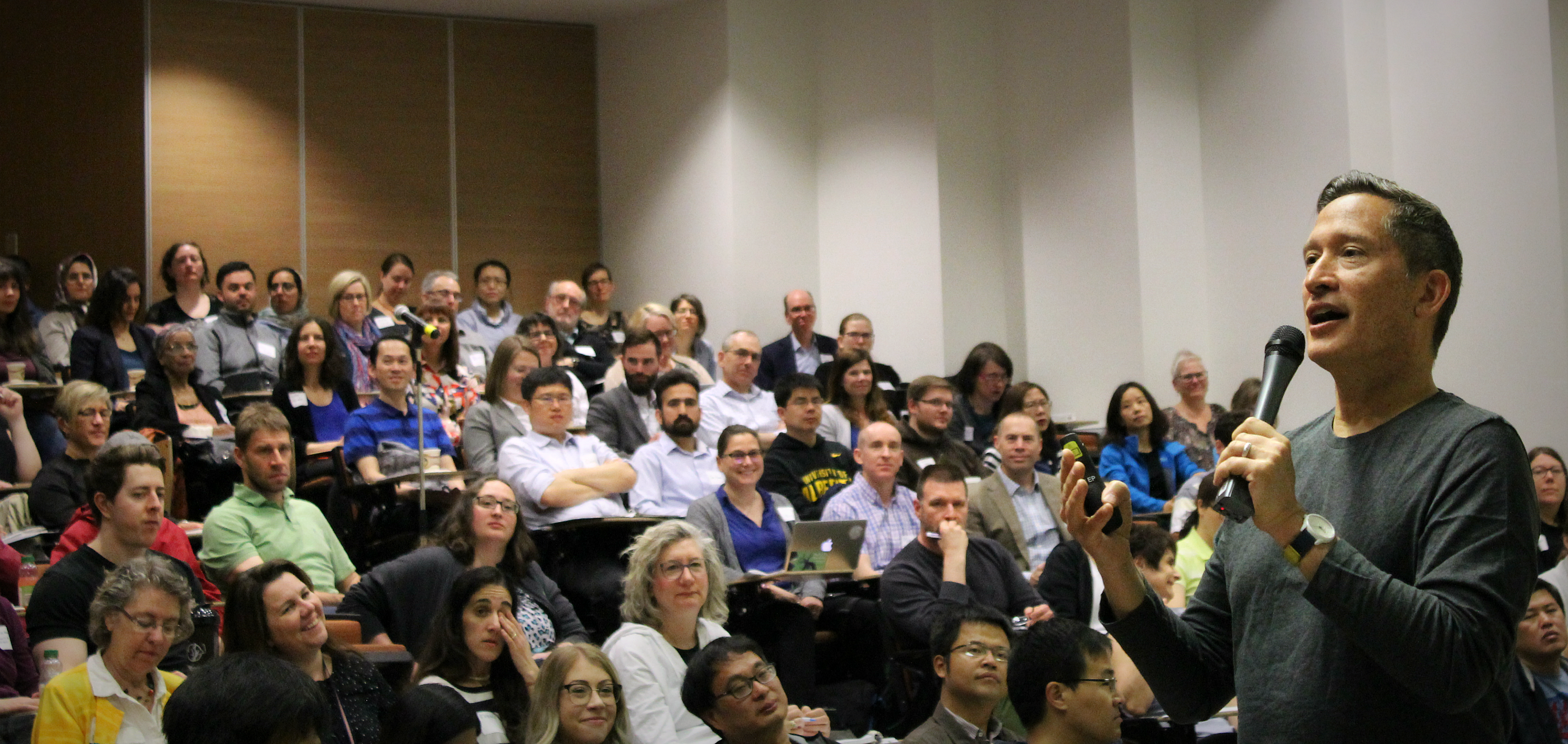
Last Friday I found myself seated in front of Dr José Bowen - the author who encourages us to try Teaching NakedTeaching Naked. As a participant at the 2018 Festival of Teaching and Learning, and as someone who has read Dr Bowen's book, I was particularly interested in hearing Dr José Bowen give the keynote address: Nudges, the Learning Economy and a New 3Rs: Redesigning for Student Relationships, Resilience and Reflection.
I found his book an interesting read, with its thesis that online learning will have the same disruptive effect on higher education that file sharing and Amazon have had on both the music and book industries, and was looking forward to hearing what he would bring to his talk. After all, in his book, he encourages us to enthusiastically embrace and fully use the online resources that could risk putting university professors out of jobs in the next decade unless we embrace the possibilities that are opened up by online learning.
So, what are some of the ideas that resonated with me during the keynote?
Be An Intellectual Coach
I very much appreciated his analysis that university was once about conveying scarce but reliable knowledge. To research term papers students once needed to flip through pages and pages of the Index Medicus or Science Citation Index, among others. Now, that information rests in our pockets as accessed by our smartphone.
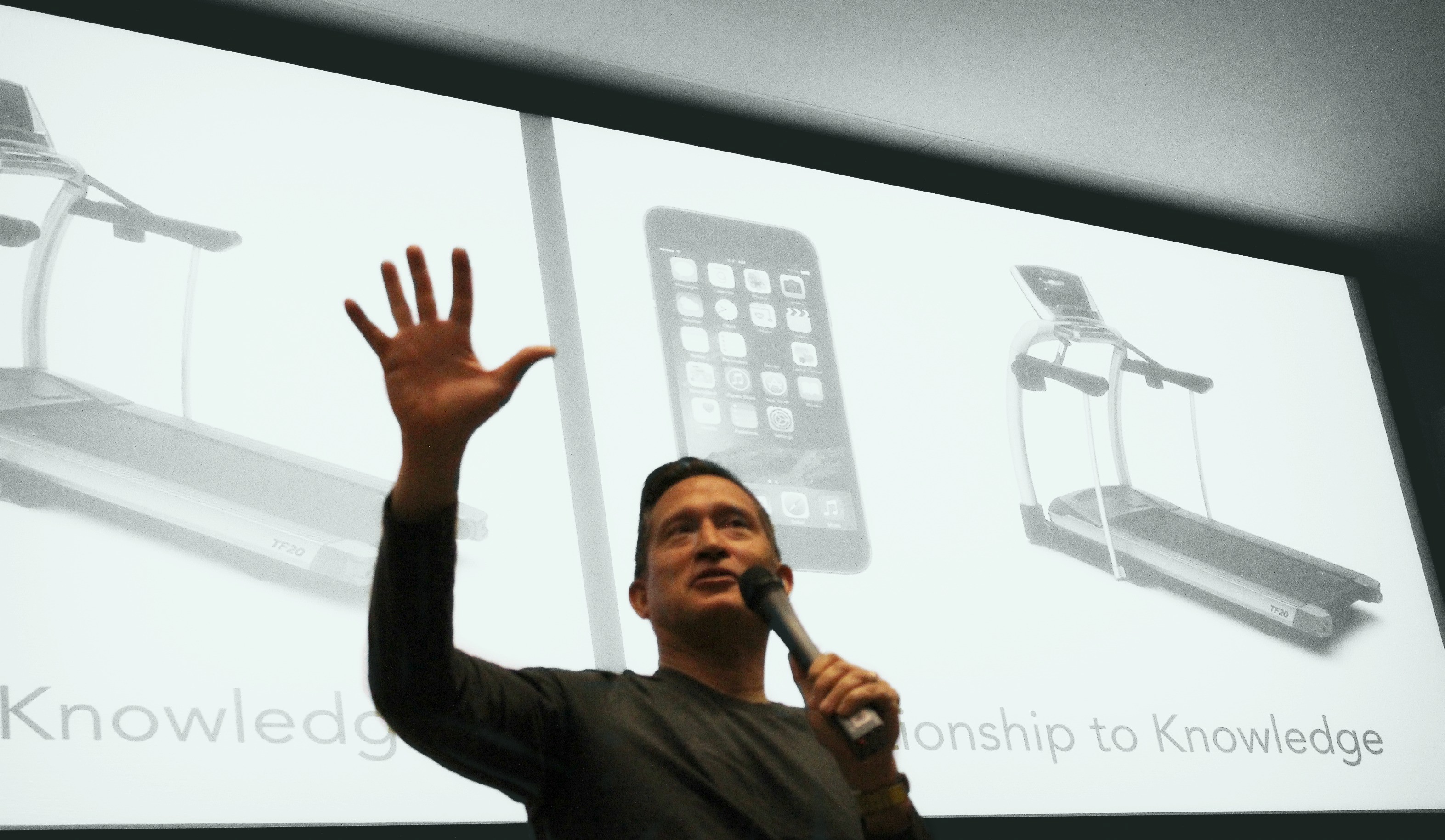
However, as a result of readily available information, the noise to signal ratio has significantly increased giving rise to fake news. As a result, one of the most important things we can teach students is how to sift through the quagmire of information. The smartest person in the room is no longer the one who knows the most, it is the one who is able to think and change their mind after weighing the evidence. This means that students must practice thinking and develop judgement by considering which information is most pertinent and reliable. Students need to practice doing this themselves. One effective analogy that Bowen provided was that it does no good for an athlete to watch someone else do push-ups. In other words, the one doing the thinking is the one doing the learning. The best teacher is the one who is able to get their students to do the most intellectual work.
Nurture Resilience
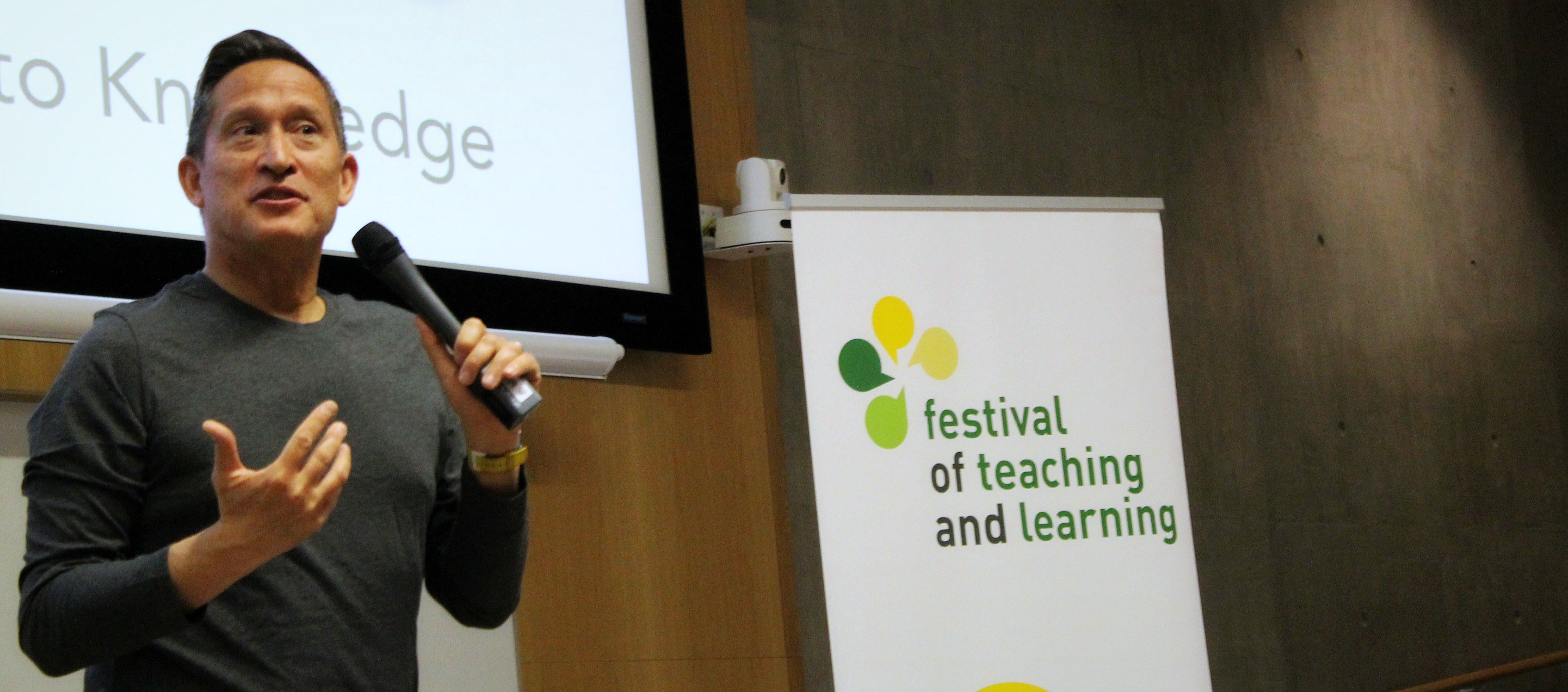
But to do this, to encourage students to do the intellectual work of first contact with the course content before class and to practice applying that learning material in class in a social setting, students must feel that it is safe to fail. To provide a learning environment in which students are encouraged to field test their learning requires that instructors provide the three Rs of learning: relationships, resilience, and reflection. Developing relationships with our students and nurturing relationships among students fosters student resilience to master the material even when it is not immediately understood. One way to help students' resilience is to nurture their reflection of how they are learning such that students reconsider their study strategies. Bowen provided one example called cognitive wrappers (aka exam wrappers) in which students are provided with prompts when their exams are returned asking them to consider whether their study strategies are effective. This is similar to the learning philosophy assignment I am currently researching with my TLEF funding.
Build a Learning Community
Critical to developing these 3Rs with students is getting to know our students and having students develop their own learning community. Doing this can alleviate student fear which is known to cognitively interfere with learning. As an instructor, we must assure our students that we care about them and that our work includes being their cognitive coach, not their information dispenser. I'd rather be a coach than a PEZ dispenser myself. One concrete bit of advice I think will be useful for my own teaching is to stop using the first day of classes to go over the syllabus. Bowen argued that these are all available online in our LMS. Our students are adults - they can go to eClass and read the syllabus on their own. Instead, we should be using that first day of classes to explain to students why the course should matter to them, why it matters to us. And there is nothing wrong with having a reading quiz on the syllabus to encourage students to look at the syllabus by the next day of classes. This is a technique I have used on occasion in my own classes and it can work very well.
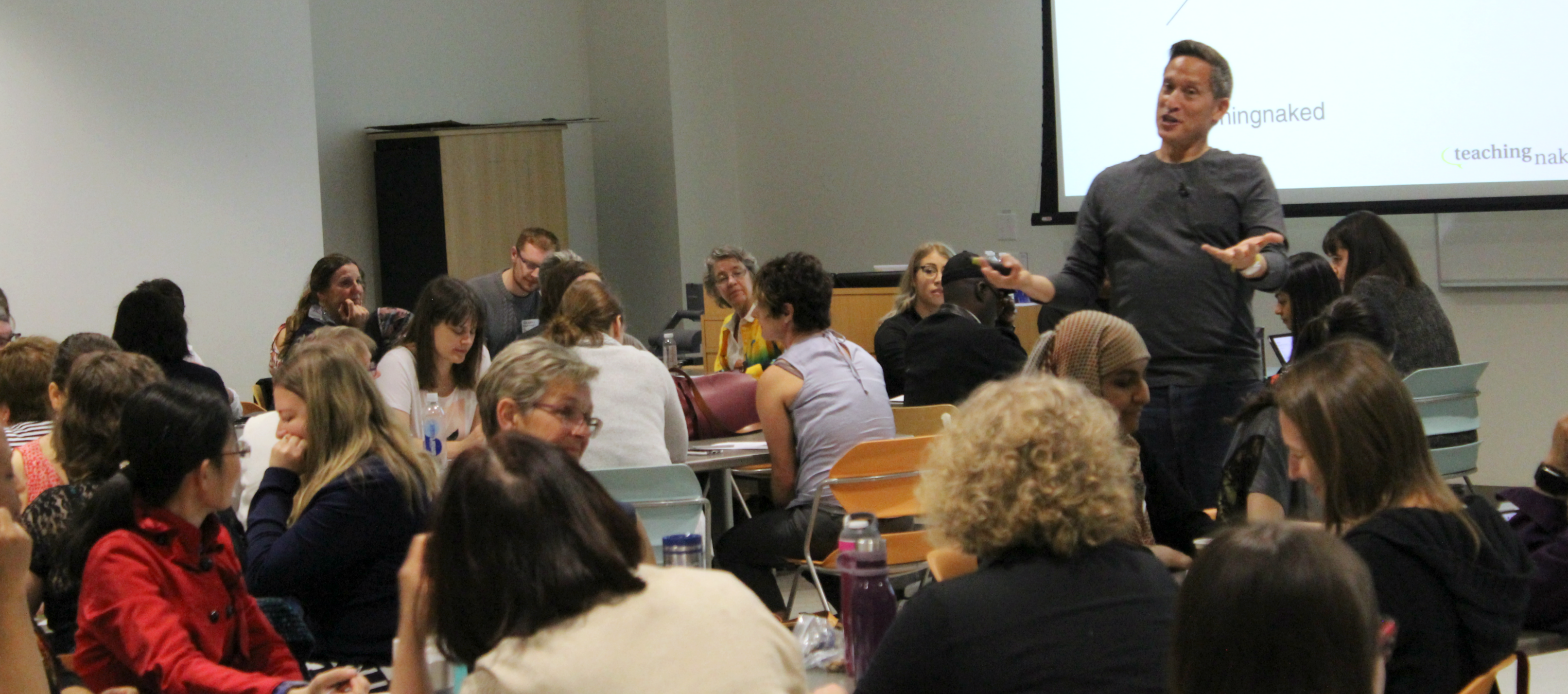
So how do we get to know our students especially when many classes are taught to 100s of students at a time? Bowen suggests showing passion for our subject matter to model that we care about what we are teaching - it matters to us. In addition, he suggested that we harness online technologies to facilitate our connection with many students at a time by posting timely announcements to eClass, email introductions to readings with links to current events, hold virtual office hours online (e.g. use Google Hangouts), and consider holding office hours where students meet in SUB, HUB, CAB, CCIS, or the library.
Students as Gamers?
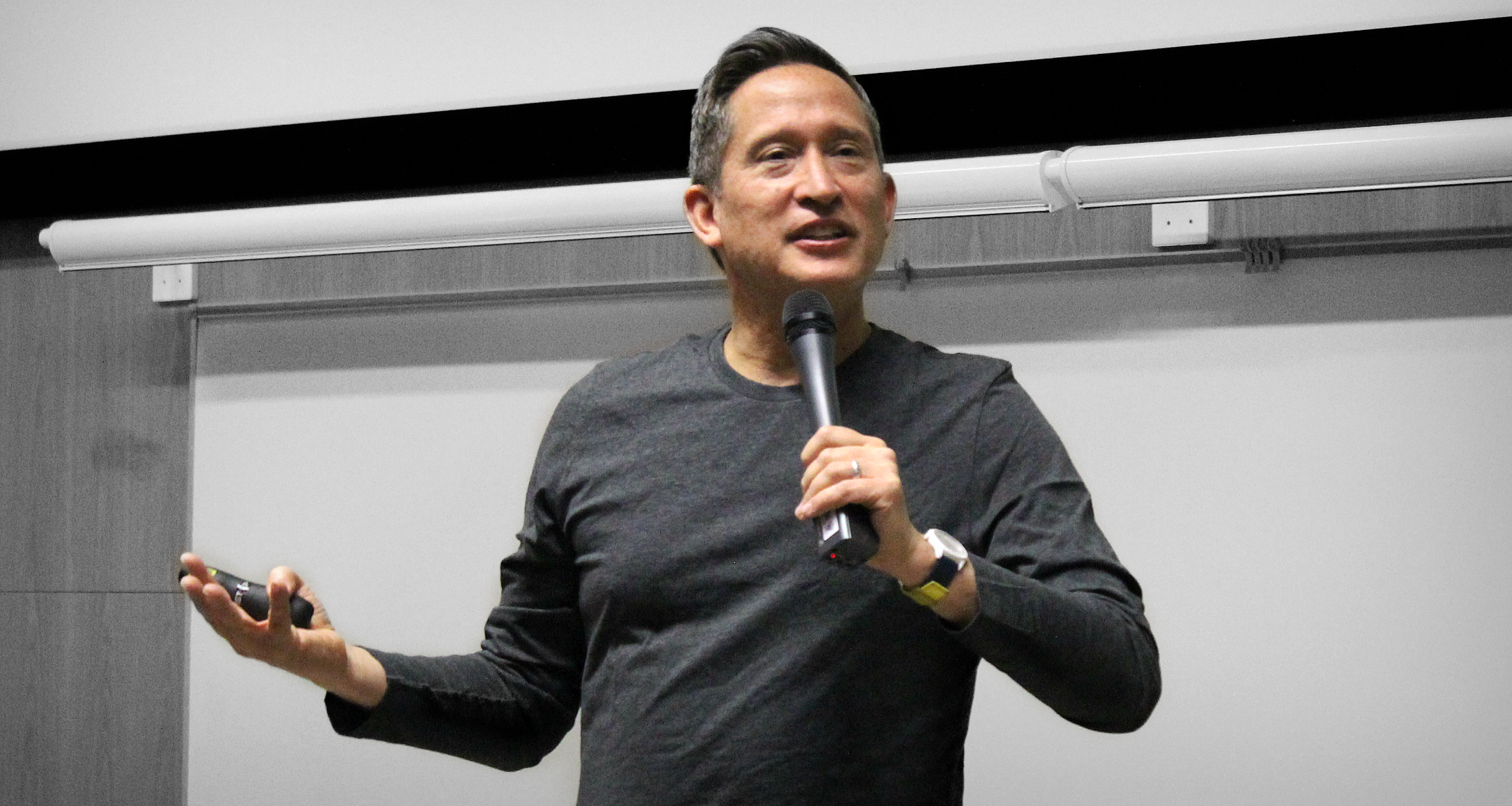
A final point that Dr Bowen made that I am unclear how to apply myself is that online educational resources are beginning to make learning customizable and more like a game. Traditionally, higher ed instructors have taught to the middle of the class by responding to both visual cues and to the occasional brave student who asks a question for clarification. But if teaching in the era of online learning requires us, as instructors to be cognitive coaches and curators of content, then it will be incumbent on us to tailor our teaching to individual student needs. How do we do that for large classes?
In addition, I am unsure how to deal with student resistance to being responsible for their own first contact with the material before class. It feels to me like what was old is new again with the flipped classroom and blended learning. I remember as an undergraduate being expected to have completed the reading before coming to class so that we (the students) were prepared to discuss and work with the material. However, our current teaching and learning culture (at least in the sciences) seems to be rather passive and the movement to make students accountable for pre-class preparation is to some extent counter-cultural to students' expectations of what it means to learn and be taught.
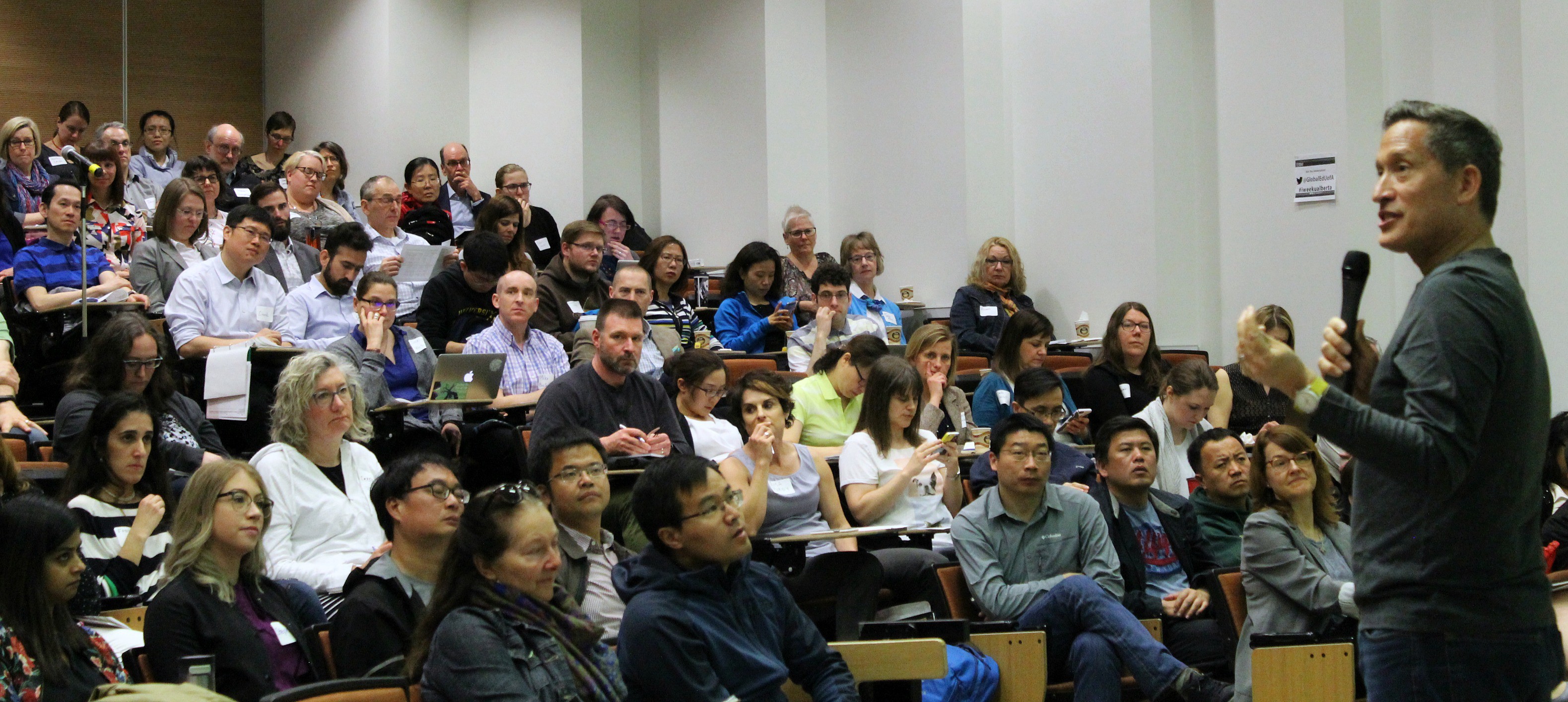
Many of Bowen's suggestions, I think, are to leverage educational technologies to facilitate this culture change which develops students to be active in their own learning. This requires scaffolding of learning opportunities and encouragement by us as their cognitive coach that yes, they can exert that extra bit of mental effort to develop the cognitive skills that apply the course content. In order to do this, our classrooms need to be naked classrooms - active learning classrooms - in which the physical space is constructed such that students are able to collaborate with each other as they learn to apply their learning. The availability of online learning resources means that the content being learned doesn't change, but the way it is learned, the way it is taught has changed.
Dr Bowen ended his keynote suggesting that the new educational technologies mean that it is less important for instructors to verbally tell students what they need to know. Online learning has made this unnecessary - there are freely available podcasts from experts in the field that are able to do this. What online learning has done is made thinking more important than information, course design more important for content delivery, and integration of learning more important than dispensing information. The most important thing that instructors can do is to model thinking by openly changing our minds when new information is presented - but to be comfortable taking the time to think the issue through.
In Bowen's words: Teach naked - change a mind.
Neil Haave - Associate Director (Scholarship of Teaching and Learning), Centre for Teaching and Learning

Neil Haave has been teaching molecular cell biology and biochemistry at the Augustana Campus since 1990 where he served as Chair of Science and Associate Dean. Neil is a recipient of a McCalla Professorship and Augustana's Teaching Leadership Award and Teaching Faculty Award for the Support of Information Literacy. Neil is interested in developing scholarly approaches to teaching which includes researching our own educational practices in light of the published literature on teaching and learning in higher education. He occasionally posts to his blog, Actively Learning to Teach.
Resources
Berg, M., & Seeber, B. K. (2017). The slow professor: Challenging the culture of speed in the academy. Toronto, ON: University of Toronto Press.
Bledsoe, T. S., & Baskin, J. J. (2014). Recognizing student fear: The elephant in the classroom. College Teaching, 62(1), 32-41.College Teaching, 62(1), 32-41.
Bowen, J. A. (2012). Teaching naked: How moving technology out of your classroom will improve student learning. San Francisco, CA: Jossey-Bass, an imprint of Wiley.
Freeman, S., Eddy, S. L., McDonough, M., Smith, M. K., Okoroafor, N., Jordt, H., & Wenderoth, M. P. (2014). Active learning increases student performance in science, engineering, and mathematics. Proceedings of the National Academy of Sciences of the United States of America, 111(23), 8410-5.Proceedings of the National Academy of Sciences of the United States of America, 111(23), 8410-5.
Park, E. L., & Choi, B. K. (2014). Transformation of classroom spaces: Traditional versus active learning classroom in colleges. Higher Education, 68(5), 749-771.Higher Education, 68(5), 749-771.
Smith, C. V, & Cardaciotto, L. (2011). Is active learning like broccoli? Student perceptions of active learning in large lecture classes. Journal of the Scholarship of Teaching & Learning, 11(1), 53-61.Journal of the Scholarship of Teaching & Learning, 11(1), 53-61.